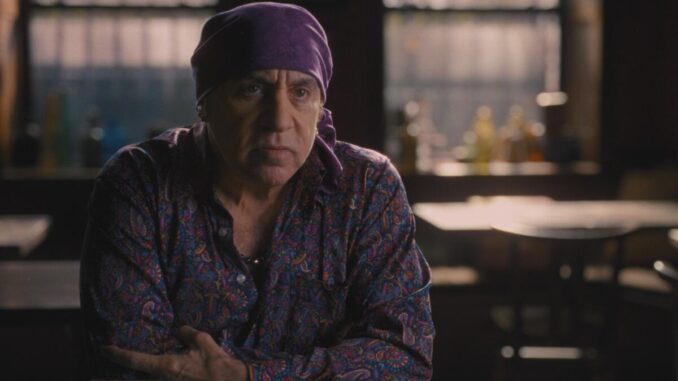
The buzz surrounding HBO’s The Sopranos has not faded since its groundbreaking debut in 1999. As one of the most acclaimed television series of all time, it left an indelible mark on pop culture. However, it’s not all love and admiration—famed director Martin Scorsese has had some pointed criticisms of the show. Recent discussions around the documentary Wise Guy: David Chase and The Sopranos have shed light on Scorsese’s perspective, alongside other intriguing revelations. Let’s dive into why Scorsese wasn’t a fan and explore other captivating insights from the documentary.
Martin Scorsese’s Critique of The Sopranos
The Source of Discontent
While Scorsese is a titan of crime cinema, known for classics like Goodfellas and Casino, his feelings about The Sopranos are complex. He’s been quoted expressing disappointment in the show’s portrayal of mob life, feeling that it often veered too far into the realm of melodrama. Scorsese believes that the show focused more on the characters’ personal dramas than the harsh realities of organized crime.
One key criticism is that The Sopranos sometimes indulged in a romanticized view of the mafia. Scorsese argues that the show’s focus on therapy sessions and familial issues diluted the raw, gritty nature of mob life that he often emphasizes in his own work. For Scorsese, the essence of crime stories lies in their brutal honesty, something he felt was occasionally lost in The Sopranos’ narrative.
The Influence of Film vs. Television
Another interesting angle is the difference between film and television. Scorsese, who has spent decades perfecting his craft in film, sees television as a different beast. He has expressed concern that television can dilute the storytelling quality, focusing on episodic drama rather than cohesive narratives. In his view, The Sopranos sometimes fell into the trap of sustaining its storyline for dramatic effect rather than delivering a concise and impactful message.
Insights from Wise Guy: David Chase and The Sopranos
Behind the Scenes with David Chase
Wise Guy takes viewers behind the curtain, offering an intimate look at the creative forces behind The Sopranos. David Chase, the show’s creator, shares anecdotes that reveal the challenges and triumphs of bringing the show to life. He candidly discusses his vision and how he aimed to depict the complexities of mob life, albeit through a lens that included emotional depth and psychological exploration.
Chase acknowledges the mixed reviews and perceptions that came with the territory. He’s not shy about admitting that some critics, including Scorsese, might have missed the point he was trying to make. According to Chase, The Sopranos wasn’t just about the mafia; it was about human beings navigating their tumultuous lives.
Casting Choices and Iconic Performances
One of the most fascinating elements discussed in Wise Guy is the casting process. Chase reveals how he found the perfect actors for each role, including the iconic James Gandolfini as Tony Soprano. Gandolfini’s ability to embody the complexities of Tony—a mob boss struggling with anxiety and familial issues—made him an ideal choice. Chase shares that Gandolfini brought a depth to the character that made audiences empathize with a man often portrayed as a villain.
The documentary also touches on how the ensemble cast contributed to the show’s success. Actors like Edie Falco (Carmela Soprano) and Michael Imperioli (Christopher Moltisanti) delivered unforgettable performances that enriched the narrative, and Chase reflects on the collaborative atmosphere that fostered creativity.
The Legacy of The Sopranos
Redefining Television Drama
The Sopranos is often credited with changing the landscape of television. Before its arrival, dramas were typically episodic and focused on self-contained stories. However, Chase and his team crafted a show that allowed for long-term character development and intricate story arcs, paving the way for future series like Breaking Bad and Mad Men.
The documentary delves into how The Sopranos redefined the anti-hero trope. Viewers became fascinated with flawed characters, making them more relatable. Tony Soprano, for instance, is not just a mobster; he’s a man grappling with mental health issues, family responsibilities, and the moral dilemmas that come with his lifestyle. This complexity resonated with audiences and remains a topic of discussion in the world of television.
Cultural Impact and Ongoing Discussions
The legacy of The Sopranos extends beyond television. Its influence permeates popular culture, from references in music to parodies in other shows. The documentary highlights how the series has sparked conversations about morality, family dynamics, and the American Dream—topics that remain relevant today.
Moreover, the dialogue surrounding Scorsese’s critique serves as a reminder that even the most acclaimed works can be divisive. The discussions reflect a broader conversation about the portrayal of crime, ethics, and the human condition in art.
Conclusion
Wise Guy: David Chase and The Sopranos offers a rich exploration of the creative genius behind one of the most iconic series in television history. While Martin Scorsese’s critiques may reveal a divide in the appreciation of The Sopranos, they also underscore the complexity of storytelling in modern media. Chase’s vision, Gandolfini’s transformative performance, and the cultural impact of the series collectively solidify The Sopranos as a pivotal moment in television history.
